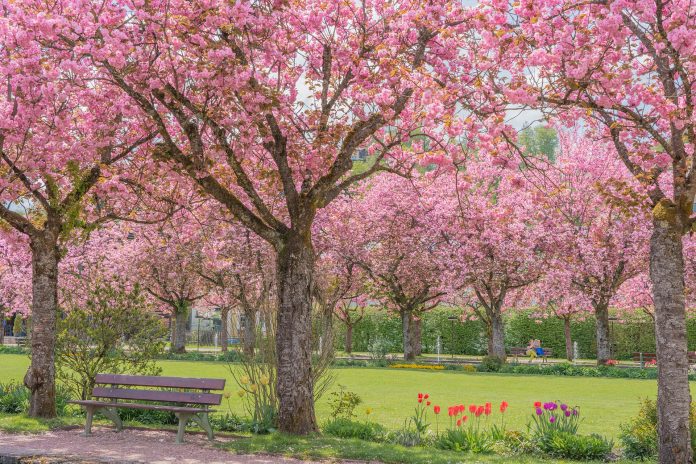A recent article on the website of a local Vermont television station, WCAX 3, titled “Allergy sufferers face worsening symptoms from changing climate,” claims that global warming is leading to more pollen, which means more suffering for those with allergies. WCAX is just one of a number of media outlets which jump on this claim every spring, which is likely true. But WCAX’s story, as with most others covering the link between seasonal allergies and the length of the growing season, leaves out the obvious benefits of a greener world.
Ironically, one of the opening statements of the post acknowledges that pollinators are benefiting from increased pollen count: “[w]hile the increase of pollen is welcomed by the busy bees of Vermont, it is not so welcomed by Vermonters with allergies.”
According to the article, Vermont has seen its growing season expand by 29 days since 1970, “bringing allergies earlier and creating more severe symptoms for more Vermonters,” largely because pollen counts have increased by more than 20%.
Indeed, more pollen is good for pollinators like honey bees, and in fact, globally there has been an increase in honey production over the past decade, as shown by Climate Realism, here. This is despite the issue of colony collapse disorder, which is caused by a variety of factors like pesticides, mite invasions, habitat changes, and inadequate forage (plant nectar). The final contributor, a lack of food sources, should see a reduction as plants become more productive.
According to WCAX, “on top of the changing climate extending the growing season, the warmer and wetter weather is encouraging new and added plant growth,” which creates or expands habitat for bees and other wildlife.
But it’s not merely wild plants and flowers that have seen improved growth over the past few decades of modest warming and CO2 fertilization. Most food crops have benefited as well. Staple cereals and almost every other category have seen improved yields globally, as explained by Climate at a Glance: Crop Production. These improvements are due to a variety of factors, like improved agricultural technology, planning, and scaling that only fossil fuels can provide, but the role of that atmospheric CO2 fertilization and expanded growing seasons have played in increasing production and yields cannot be ignored. Higher crop yields mean more food for hungry people. This obvious benefit is regularly overlooked by the mainstream media when it writes about the suffering induced in allergy suffers by the Earth’s greening.
Interestingly, despite alleged suffering inflicted on people due to having more plant growth, cities and suburbs are increasingly devoting land to permanent “green spaces,” touting the benefits of bringing nature (and pollen-laden plant life) into urban areas. These benefits include decreasing the urban heat island effect and associated warming, improving air quality, and there is even an international study from the Barcelona Institute for Global Health and Colorado State University suggesting that urban green spaces reduce premature human deaths.
As Climate Realism has shown at least a dozen times, the media’s fixation on the allergy issue at the expense of the obvious environmental benefits is unfortunate and misleading. To be fair, in its story, WCAX should have balanced the harms from the expanded allergy season, against the millions of people lifted out of hunger and malnutrition from improved plant growth and crop yields, the benefits to pollinators and wildlife in general, and the benefits of increased access to greenspace in urban areas.















